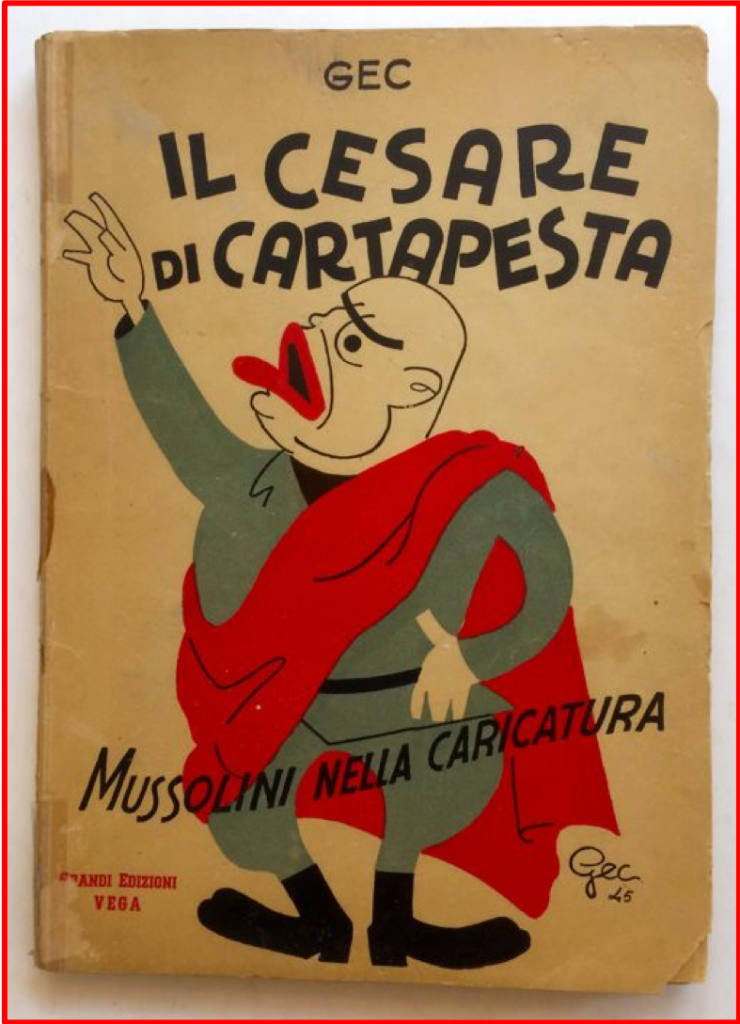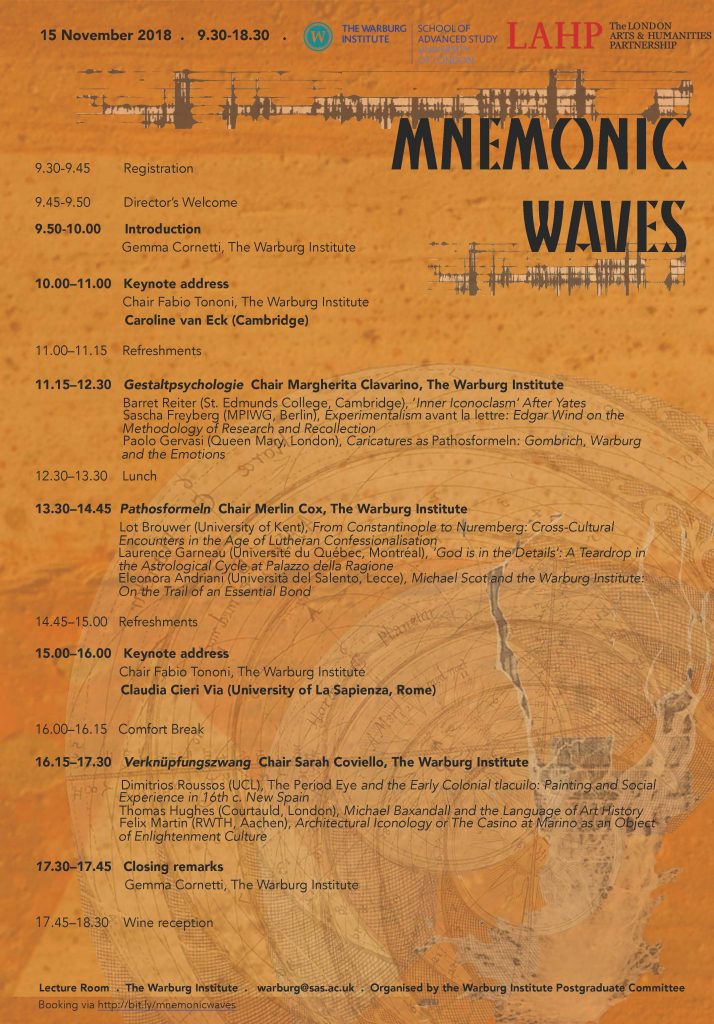Last November 15 I participated in the postgraduate symposium of the Warburg Institute Mnemonic Waves, with a paper on caricatures and the post-Warburgian studies titled Caricatures as Pathosformeln. Gombrich, Warburg, and the Emotions, of which I publish here the text.
Tag Archives: Warburg
Mnemonic Waves
I’m really excited to be one of the speakers of the forthcoming symposium Mnemonic Waves, to be held in London at the Warburg Institute next November 15.
Mis-Shapings
On Thursday 13th September 2018 will take place at Queen Mary University of London (Mile End Campus, Arts One Building, Room 128) the international conference Mis-Shapings. The Art of Deformation and the History of Emotions. I’m organising the conference, as coordinator of the Marie Skłodowska-Curie research project Misshaping by Words, in association with the Queen Mary Centre for the History of Emotions.
Concept
A well established and long-standing bond exists between the representation of the forms and postures of the human figure and the expression of emotions. But how does this change when the body represented is deformed or mis-shapen? This is a question that an interdisciplinary range of scholars, covering a wide chronological period that extends from the Renaissance to the 20th century, will explore in the one-day Mis-Shapings conference.

Niccolò Boldrini, Caricature of the Laocoon, after Titian, 1540
Emotional performances
It has been recently published the volume Ti do la mia parola. Sette saggi sul tradimento, edited by Alessandro Benassi and Serena Pezzini, with an introduction by Paolo Godani (Roma: Edizioni di Storia e Letteratura, 2017).

Anger as misshapen fear: fascism and the emotional body
What follows is the text of the paper I gave the 20 June 2017 at the International Conference «Fears and Angers. Historical and Contemporary Perspectives», Queen Mary University, 19-20 June 2017.
Probably Federico Fellini’s Oscar-winning movie, Amarcord, released in 1973, perfectly defines what was supposed to be the, as William Reddy would say, «emotional regime» of fascism. Enthusiasm, faith, happiness, and veneration for the Chief were the dominant public feelings endorsed by fascism. But, despite the public ceremonies being widely, and often sincerely, officiated by Italian people, fascism largely derived consensus from violence and intimidation.

Giacomo Manzù, Black Brigadist, 1943


